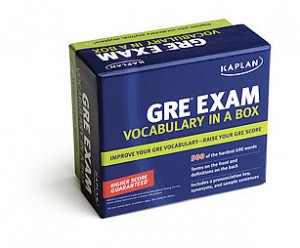Loquacious Bombasticisms
I don’t like being bad at things. Nobody does, of course, but in my case, I particularly loathe being the worst at something.
It has come to my attention that, of my six work colleagues and I, I have by far the most limited vocabulary. I can, of course, make up excuses to explain this travesty, such as:
– That I spent my youth on chess and numbers;
– That I really only read chess books, which are usually written by Russians and translated with a simplistic English vocabulary; or
– That they are lawyers.
However, none of these excuses adequately replenishes my bruised ego. So I’ve taken it upon myself to improve my vocabulary one word at a time, using Kaplan’s “Vocabulary in a Box.” It’s basically just flash cards of 500 really tricky words that most regularly make their way onto the international graduate entrance examination (GRE), which I’m sitting in a few weeks.
Each day, I stick a dozen or so on my workspace wall, and my workmates clamber around and try to outdo each other with their verboseness (of course, I don’t know any of them). While the others boast about who knew the most and argue over definitional differences, I diligently memorise the lot by day’s end, and then get ready to start the process again.
It’s painful.
However, one thing I’m doing to make it easier is trying to slip in as many of these newly-learned words into my written work, presentations, and everyday conversations (at the obvious risk of sounding like a tosser). This tiresome process was finally rewarded on Friday when the Financial Review published my letter to the editor, despite the fact that none of my colleagues (or myself, for that matter) could understand it.
Unfortunately, the novelty of sounding erudite around my peers has quickly worn off, but hopefully it will all prove worth it, come the exam. I will then endeavour to forget the 500 words as quickly as possible during the post-exam celebrations.
For those of you who revel in a challenge, or just want to see how much better your vocab is than mine, here are today’s words (of which, this morning, I knew none):
- Restive
- Credulous
- Umbrage
- Viscous
- Pejorative
- Iniquity
- Florid
- Languid
- Imprecation
- Interregnum
- Lugubrious
- Polyglot
- Dictum

Good Sir,
I thought at first about following the dictum, ‘let sleeping dogs lie’, but have been feeling restive and faintly lugubrious since your frankly pejorative implication that chess books are not a source of lexiconic enhancement. Indeed, whilst a more credulous reader may have allowed that to go unchallenged, I unambiguously take umbrage at the iniquity of any such assertion. Your typical chess book writer is not some florid, inbred, pinheaded galoot from the Appalachian Mountains, nay, he or she is most likely an eloquent polyglot, a wordsmith of no less than Stauntonian stature. Take for example that noted lexicographer Ravikumar, whose languid prose oozes from the pages like viscous honey.
As beseeched by the mighty orator Gough Whitlam, whose grandiloquent imprecations echoed loftily through the interregnum between his sacking and the appointment of a caretaker government, on behalf of all chess book writers, of which I’m not one, I shall ‘maintain my rage’.
There, I think that’s about it?
Not bad – much better than my attempts! The actual definitions are easy enough to look, so I’ll just point out a couple of confusions. You may have mistaken “pejorative” for “prerogative”; “credulous” for “credible”, and “iniquity” for “inequality”.
As for “lugubrious”, here’s a hint: my twisted neumonic is “How the Jamaican bobsledders felt when they crashed going down the LUGE”!
Have checked my definitions and found most of them to be close enough. Two are wrong: I confused pejorative (belittling) with prerogative (entitlement); and lugubrious (mournful) with salubrious (healthy).
David, I find your blogs fresh and insightful, attributes which should surely score highly on GRE.
My attempt:
•Restive = restless, wanting to travel
•Credulous = believable
•Umbrage = e.g. he took umbrage at my suggestion = he was offended by (disagreed with) my suggestion
•Viscous = thick, as in, “thick, slow flowing liquid”
•Pejorative = choice: he excercised his perjorative and chose not to vote
•Iniquity = not fair: he riled at the inquity of the punishment
•Florid = red-faced: of florid complexion
•Languid = dull, slow moving: Typically, he spent Sunday afternoons in a state of languid repose.
•Imprecation = ?
•Interregnum = ?
•Lugubrious = hmm, perhaps, = rich, opulent
•Polyglot = speaks a few languages
•Dictum = law, rule: the first dictum on the examination paper was that no dictionaries were allowd.
But hey what would I know, I’m only a scientist.
Thanks David – its great to know I can still get your words even in San Fran. BTW the iPad is sold out 🙁